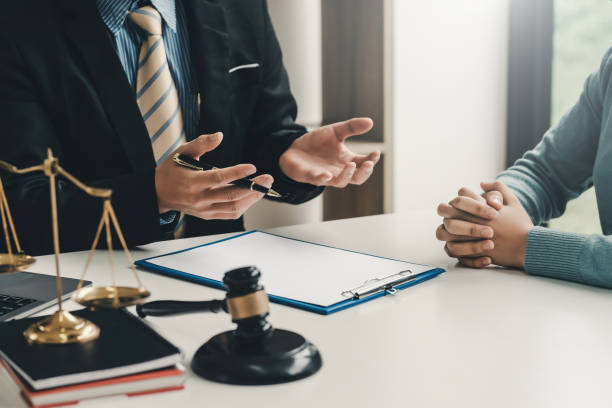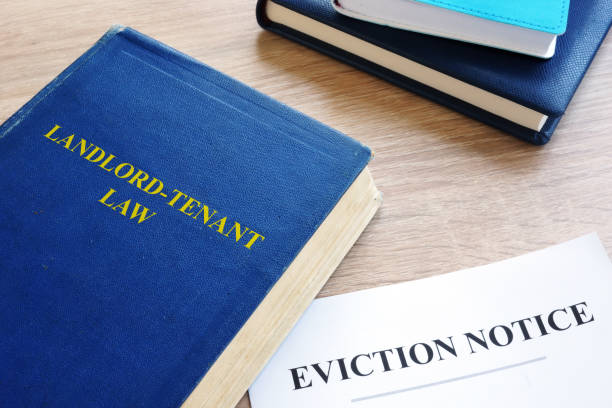
Can You Be a Lawyer with a Felony? Exploring Your Options
Navigating the legal landscape after a felony conviction can be daunting. One question that often arises is, “Can you be a lawyer with a felony?” This article delves into the possibilities and challenges associated with pursuing a legal career after a felony, providing essential information and guidance for those looking to make a fresh start in the legal field.
Understanding State Bar Requirements
Understanding the criteria established by state bar associations is crucial for individuals aiming to meet the eligibility standards required for practicing law.
Eligibility to Practice Law
Before embarking on the journey towards a career in law, it is imperative for aspiring lawyers to meticulously acquaint themselves with the specific prerequisites delineated by the state bar association of their intended practice. State bar associations serve as the gatekeepers of the legal profession, establishing stringent standards to ascertain the suitability of individuals for admission. Central to these standards are character and fitness evaluations, which rigorously scrutinize a candidate’s background for any indications of criminal history.
- Character and Fitness Evaluations: These comprehensive assessments delve deep into a candidate’s past, meticulously examining all facets of their background, including any history of felony convictions.
- State Bar Association Requirements: It is incumbent upon prospective lawyers to thoroughly acquaint themselves with the precise requirements stipulated by the state bar association governing their desired jurisdiction.
Impact of a Felony
While bearing a felony conviction on one’s record does not inherently preclude them from pursuing a career in law, it undeniably presents formidable hurdles. The evaluation of individuals with felony convictions varies significantly from state to state, with some jurisdictions imposing stricter criteria than others. Generally, the evaluation process takes into account factors such as the nature and severity of the felony, the duration elapsed since the conviction, and the individual’s conduct subsequent to the conviction.
- Nature of Felony: The categorization of the felony and its severity serve as pivotal determinants in the evaluation process, with certain offenses carrying greater weight than others in assessing an individual’s fitness for the legal profession.
- Time Elapsed Since Conviction: The duration that has transpired since the felony conviction plays a crucial role in the evaluation, with a longer passage of time often viewed more favorably by evaluators as indicative of rehabilitation and personal growth.
Key Considerations
When assessing the eligibility of an individual with a felony conviction, state bar associations typically take into account several key considerations:
- Type of Felony: The nature of the felony is an essential factor in the evaluation process. State bar associations may distinguish between different types of felonies, such as violent crimes or financial offenses. Some offenses may carry more weight than others when considering an individual’s fitness to practice law.
- Rehabilitation Efforts: Demonstrating genuine efforts at rehabilitation can significantly impact the evaluation process. This may include completing any court-ordered programs, participating in community service, or pursuing further education or vocational training. The willingness of the individual to take responsibility for their actions and work towards personal growth is often viewed favorably by state bar associations.
- References and Testimonials to Character: Letters of recommendation and testimonials from reputable individuals can provide valuable insight into an individual’s character and moral character. State bar associations may request references from employers, professors, colleagues, or community leaders who can attest to the individual’s integrity, professionalism, and moral rectitude. These testimonials can help demonstrate to the bar association that the individual has undergone positive personal development and is capable of upholding the ethical standards of the legal profession.
Steps to Overcome a Felony Conviction

Felons aspiring to pursue a career in the legal profession face unique challenges, but with determination and strategic steps, it is possible to overcome a felony conviction and achieve their goals.
Education and Rehabilitation
Demonstrating rehabilitation is a critical aspect for felons seeking entry into the legal profession. This involves various steps aimed at personal growth and societal reintegration:
- Completing Mandated Sentences or Rehabilitation Programs: Fulfilling any court-mandated sentences or rehabilitation programs is essential. This demonstrates accountability for past actions and a commitment to rehabilitation.
- Pursuing Further Education: Obtaining a college degree or pursuing additional educational opportunities showcases a commitment to self-improvement and intellectual growth. Higher education can enhance skills and knowledge relevant to the legal profession.
- Engaging in Community Service: Participating in community service or other positive contributions to society demonstrates a commitment to giving back and making amends for past transgressions. It also highlights an individual’s willingness to be actively involved in improving their community.
Legal Education
Attending law school is a necessary step towards becoming a lawyer. Admission to law school involves meeting specific requirements and undergoing evaluations, including:
- Law School Admission Test (LSAT): Achieving a competitive score on the LSAT is crucial for admission to law school. The LSAT assesses critical thinking, analytical reasoning, and logical reasoning skills, which are essential for success in law school and the legal profession.
- Undergraduate GPA: Maintaining a strong undergraduate grade point average (GPA) is also important for law school admission. Admissions committees often consider academic performance as an indicator of an applicant’s potential for success in law school.
- Personal Statements: Crafting a compelling personal statement allows applicants to share their unique experiences, aspirations, and reasons for pursuing a legal career. Personal statements provide an opportunity to address any past challenges, including a felony conviction, and demonstrate personal growth and readiness for law school.
- Background Check: Law schools conduct background checks on applicants to verify information provided on their applications, including criminal history. Transparency about past convictions is essential, as dishonesty can jeopardize an applicant’s chances of admission.
Preparing for the Character and Fitness Review
The character and fitness review is a crucial step in the bar admission process. Here’s how to prepare:
Document Rehabilitation
One of the primary focuses of the character and fitness review is assessing an applicant’s efforts towards rehabilitation and personal growth following any past legal issues or misconduct. Documentation plays a crucial role in substantiating these efforts. Here’s how you can effectively document your rehabilitation journey:
- Therapy Sessions: If you’ve sought therapy or counseling as part of your rehabilitation process, maintain detailed records of your sessions. These records may include session dates, topics discussed, progress notes, and evaluations provided by therapists.
- Community Service: Engaging in community service not only benefits others but also demonstrates your commitment to positive change. Keep thorough records of your community service activities, including the organizations or causes you’ve volunteered for, the dates and duration of your service, and any recognition or awards received.
- Educational Achievements: Continuing education and self-improvement are key indicators of rehabilitation. Document any educational achievements or certifications you’ve obtained since the incident in question. This may include courses attended, workshops completed, or academic degrees earned.
Secure References
Obtaining strong references from reputable sources is essential for bolstering your character and demonstrating your transformation. When selecting references, consider individuals who can provide meaningful insight into your character, integrity, and rehabilitation efforts. Here are some potential reference sources:
- Employers or Colleagues: Previous or current employers who can attest to your work ethic, professionalism, and integrity in a professional setting.
- Mentors or Advisors: Academic advisors, mentors, or personal advisors who have supported you throughout your journey and can speak to your character and personal growth.
- Community Leaders: Representatives from community organizations, religious institutions, or volunteer groups who can vouch for your involvement and contributions to positive change in the community.
Be Transparent
Transparency and honesty are paramount throughout the character and fitness review process. Full disclosure of any past legal issues or felony convictions is crucial, as attempts to conceal or downplay such information can severely undermine your credibility. Here’s how you can approach transparency effectively:
- Full Disclosure: Provide comprehensive and accurate information regarding any past legal issues, including dates, charges, and outcomes of legal proceedings.
- Explanation and Reflection: Alongside disclosure, offer a sincere and reflective explanation of the circumstances surrounding the incident in question. Take responsibility for your actions, demonstrate genuine remorse, and emphasize how you’ve grown and learned from the experience.
- Character References: Encourage your references to address the incident directly in their testimonies, highlighting your positive qualities, efforts towards rehabilitation, and suitability for practicing law.
- Evidence of Rehabilitation: Supplement your application with tangible evidence of rehabilitation, such as certificates of completion for therapy or community service, letters of support from mentors or counselors, and academic transcripts showcasing continued education and personal development.
Navigating the Application Process

Applying to become a lawyer with a felony requires careful planning and strategy:
Consult with Legal Professionals
Engaging with legal professionals who possess expertise in bar admissions and experience with individuals seeking admission with felony convictions is crucial. These consultations can provide invaluable insights and guidance tailored to your specific circumstances. Consider the following steps when consulting with legal professionals:
- Research: Identify lawyers or legal organizations that specialize in assisting individuals with criminal backgrounds in the bar admission process.
- Initial Consultation: Schedule an initial consultation with a legal professional to discuss your situation comprehensively. Be prepared to provide details about your felony conviction, rehabilitation efforts, and aspirations for becoming a lawyer.
- Assessment of Eligibility: The legal professional can assess your eligibility for bar admission based on the severity of your felony conviction, the jurisdiction’s bar admission requirements, and your rehabilitation efforts.
- Strategic Planning: Collaborate with the legal professional to develop a strategic plan for navigating the application process, addressing any potential challenges, and maximizing your chances of success.
Prepare for Setbacks
Applying for bar admission with a felony conviction may encounter setbacks, including initial rejections or requests for additional documentation. It’s essential to approach these setbacks with resilience and preparedness. Consider the following strategies to prepare for potential setbacks:
- Develop a Backup Plan: Have a contingency plan in place in case of rejection, including options for reapplying in the future or appealing adverse decisions.
- Gather Additional Documentation: Anticipate potential requests for additional documentation or clarification regarding your felony conviction and rehabilitation efforts. Maintain thorough records and be prepared to provide any necessary information promptly.
- Seek Legal Representation: If faced with challenges or rejections during the application process, consider seeking legal representation to navigate appeals or address any legal complexities effectively.
Stay Informed
State bar policies regarding felons becoming lawyers may evolve over time, necessitating ongoing vigilance and awareness. Stay informed about any changes or updates in bar admission policies that may impact individuals with felony convictions. Here’s how you can stay informed:
- Regularly Monitor Updates: Routinely check the official website of the state bar association or relevant legal authorities for updates on bar admission policies and requirements.
- Attend Information Sessions: Participate in information sessions or workshops conducted by legal organizations or bar associations to stay abreast of changes in bar admission procedures and eligibility criteria.
- Join Support Networks: Connect with support networks or online forums comprised of individuals navigating similar challenges in the bar admission process. These networks can provide valuable insights, resources, and support throughout your journey.
Conclusion
While being a lawyer with a felony is challenging, it is not impossible. Understanding the specific requirements of the state bar, demonstrating rehabilitation, and preparing thoroughly for the character and fitness review are key steps towards achieving this goal. With determination and the right guidance, it is possible to pursue a rewarding legal career even after a felony conviction.
FAQ
A: No, it varies by state. Some states have more lenient policies than others.
A: Violent felonies and those involving dishonesty or moral turpitude tend to be more problematic than others.
A: There is no set time frame, but most law schools and state bars look for a substantial period of rehabilitation and positive conduct post-conviction.
A: Yes, in some states, expunging a felony can significantly improve one’s chances, but the expungement process itself can be complex and varies by jurisdiction.

